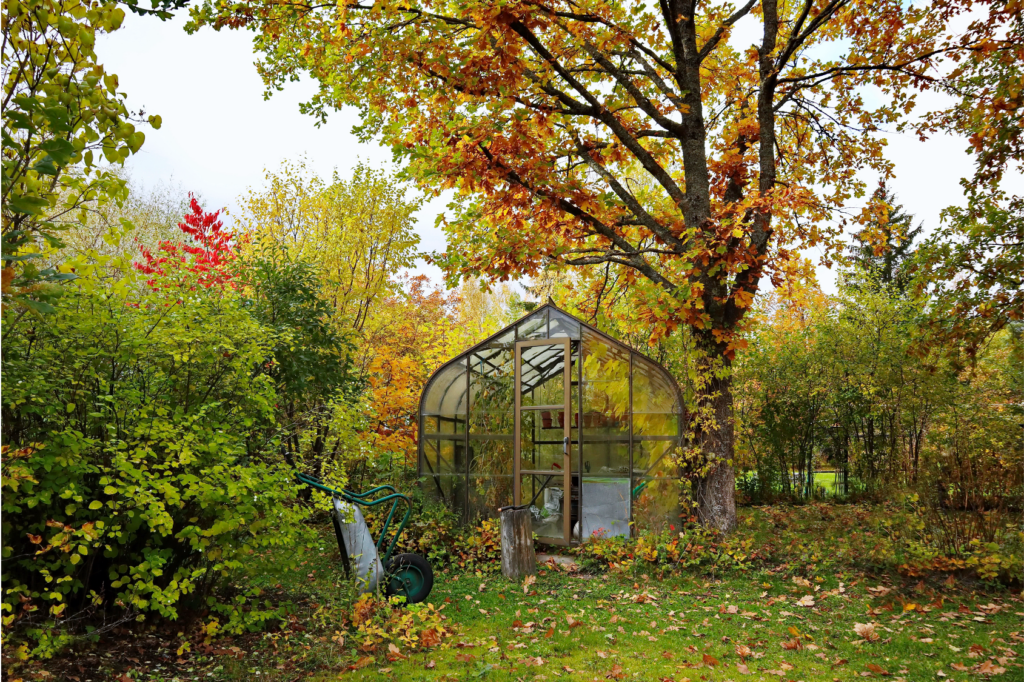By Michael Shook
July marked 11 years at our property, and I feel I know the landscape now. The first trees I planted look like proper trees, rather than sticks. And the surrounding extant trees are familiar to me in ways they were not when first we moved here.
To get to know a place takes time. Time to understand not just the physical landscape, but how that is affected by the shifting seasonal weather patterns. The wind, for example: from which direction does it blow, fall and winter; when is it drying, when damping? What are the rhythms of sun and heat; how does light hit this part of the property, then this part, and which areas are more protected from both heat and wind? It all takes time; wandering, watching, tending plants in the morning, the afternoon, into evening, in all seasons. Paying attention to what is going on in the sky, the dirt, and with insects, birds, raccoons, deer, and the other life-forms the land teems with.
The result is to be granted a sense of place, and within that, the opportunity to practice human being; for human-ness, done appropriately, is an action, more verb than noun. We have to learn how to be human, through teaching by a host of others over our lifetimes – including other species, both flora and fauna – if we are ever to be something more than a cunning, violent, bipedal predator. And place is needed for that. Not “my place,” as if this were my possession, though there is some of that (yet much more that place possesses me). This, specifically, is where I am, and where I am becoming. A considerable effort must be made to invest myself so. For it is in a specific place that I do my living and dying, my loving and, because of that, inevitably, my grieving.
Such consideration sets me thinking about placement. My dictionary speaks of placement as “The assignment of a person to a suitable place.” I am so assigned. My ancestry is mostly Scots-Irish and Dutch, with some Viking thrown in. It’s my belief that, largely because of that genetic heritage, I have never been bothered by our months of low, gray cloud cover, glimmering light, and (mostly) gentle rain. To the contrary, I anticipate and welcome the rainy season, embrace it, the more so because of our summer drought. It may help that, growing up in the greater Puget Sound basin, a phrase I heard regularly from my parents was “Go outside!” no matter the weather. I soon learned that, by dressing appropriately, a bit of cold or rain was of little consequence.
But it seems reductive to limit the assignation of place to mere genetics. Humans are remarkably adaptive and can make a home for themselves almost anywhere. And Americans in particular have made a secular religion out of going places, sticking for a while, then moving on – here, there, everywhere, anywhere, and back again. A nation of immigrants, to a degree unfound elsewhere on the planet, a restless, rootless people. We move a lot, almost three times as often as Europeans (on average eleven times in a life, as opposed to four, respectively). We move across country for a job (the most common reason), or education, or a new start, or because we want a change of scenery, a different climate. Whatever the reason, or reasons, it has been and is so pedestrian an action, that upon hearing loved ones will now be residing 3,000 miles away, the news is received with a sigh, and a shrug of indifference. We’ll just hop a flight and visit, or not.
Which makes enacting “place” quite a challenge, if indeed it is thought of at all. Place requires, in addition to time, a kind of involvement that is wholehearted. I must risk entanglement in the life of a place, or, to put it another way, I must love the place itself, for itself, in order to be in and of that place. Relationships with land (and the people thereof) must be entered into and nurtured, which then, of course, makes me vulnerable to calamitous pain when the land/people are harmed. (Within this slight meditation, let me now place humans aside for a moment, and consider the pain of the land that affects me.) The land pain, the wounds inflicted upon the countryside, these ebb and flow, now close at hand, now far distant, but accumulating nonetheless over a period of years, as place is altered in myriad ways, and I am powerless to stop any of it. To be present as land, trees, waterways, even sky, are riven, buried or uprooted, destroyed; then the sorrow comes upon me, made worse by the knowledge that I, too, like all of us, have participated in that destruction.
And as time – “the destroyer of all” – does its work, place gradually becomes displace …

